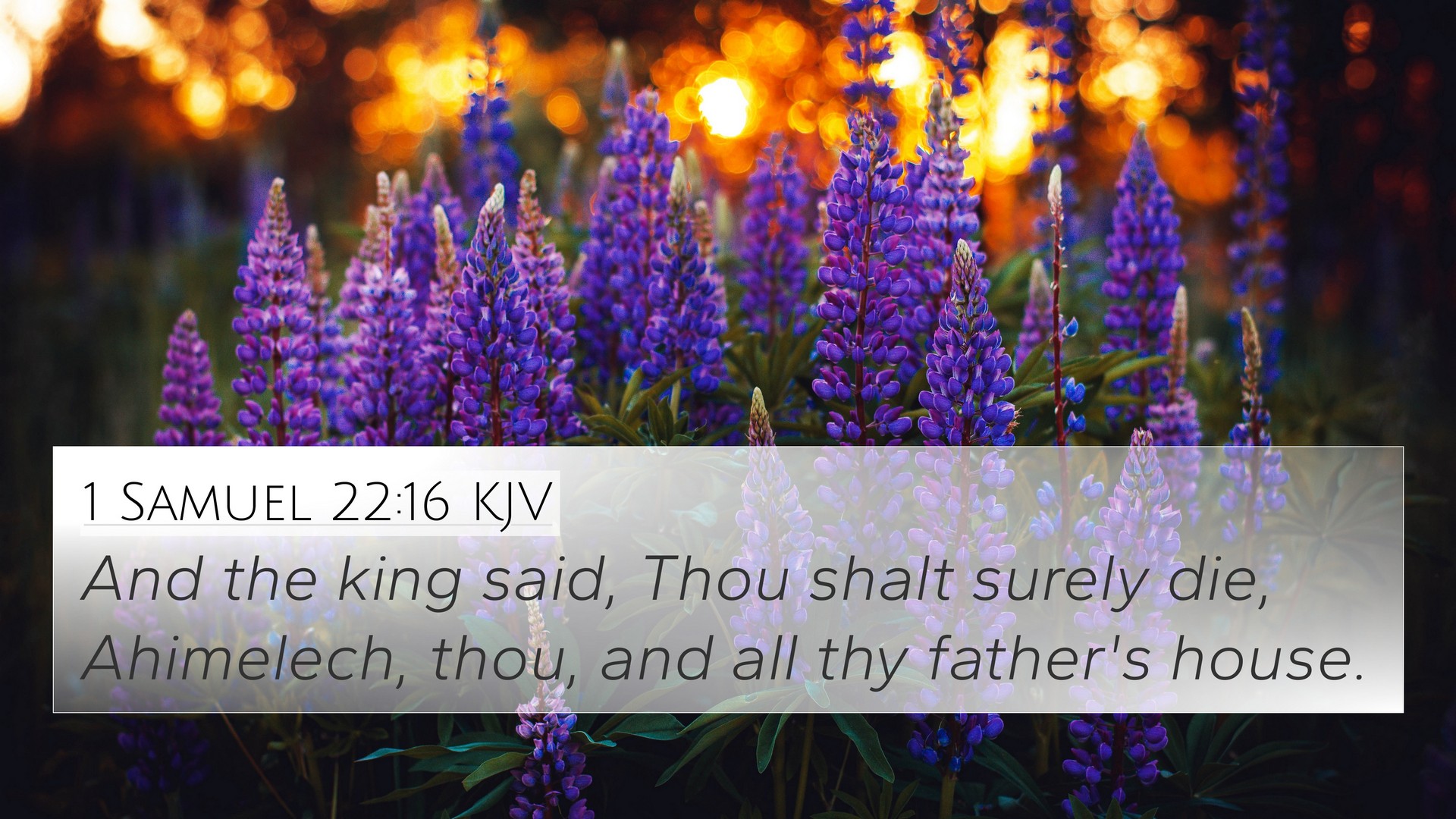This section features a detailed cross-reference designed to enrich your understanding of the Scriptures.
Below, you will find carefully selected verses that echo the themes and teachings related to 1 Samuel 22:16 KJV. Click on any image to explore detailed analyses of related Bible verses and uncover deeper theological insights.
 Matthew 2:16 (KJV) »
Matthew 2:16 (KJV) »
Then Herod, when he saw that he was mocked of the wise men, was exceeding wroth, and sent forth, and slew all the children that were in Bethlehem, and in all the coasts thereof, from two years old and under, according to the time which he had diligently enquired of the wise men.
 Daniel 2:12 (KJV) »
Daniel 2:12 (KJV) »
For this cause the king was angry and very furious, and commanded to destroy all the wise men of Babylon.
 Daniel 3:19 (KJV) »
Daniel 3:19 (KJV) »
Then was Nebuchadnezzar full of fury, and the form of his visage was changed against Shadrach, Meshach, and Abednego: therefore he spake, and commanded that they should heat the furnace one seven times more than it was wont to be heated.
 Daniel 2:5 (KJV) »
Daniel 2:5 (KJV) »
The king answered and said to the Chaldeans, The thing is gone from me: if ye will not make known unto me the dream, with the interpretation thereof, ye shall be cut in pieces, and your houses shall be made a dunghill.
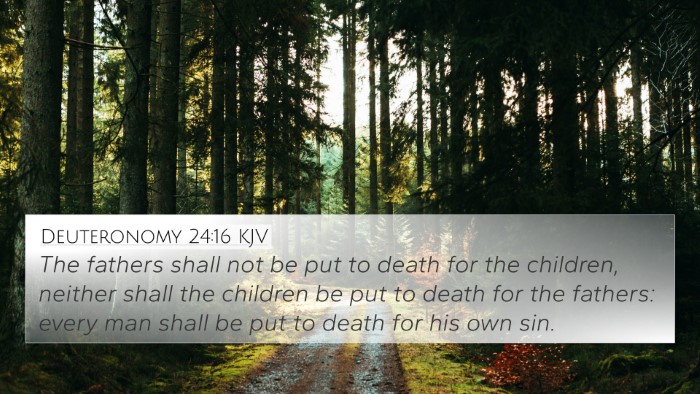 Deuteronomy 24:16 (KJV) »
Deuteronomy 24:16 (KJV) »
The fathers shall not be put to death for the children, neither shall the children be put to death for the fathers: every man shall be put to death for his own sin.
 Esther 3:6 (KJV) »
Esther 3:6 (KJV) »
And he thought scorn to lay hands on Mordecai alone; for they had shewed him the people of Mordecai: wherefore Haman sought to destroy all the Jews that were throughout the whole kingdom of Ahasuerus, even the people of Mordecai.
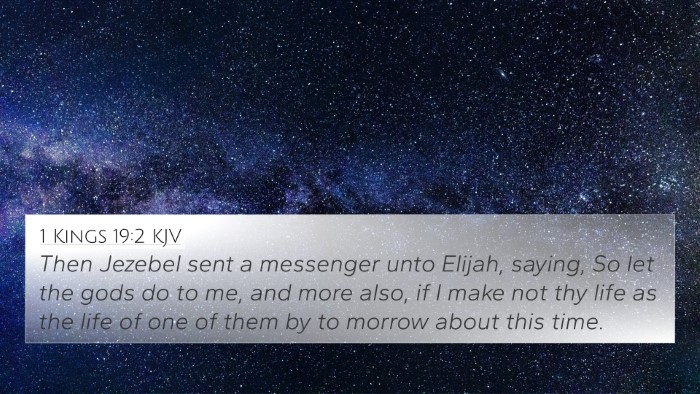 1 Kings 19:2 (KJV) »
1 Kings 19:2 (KJV) »
Then Jezebel sent a messenger unto Elijah, saying, So let the gods do to me, and more also, if I make not thy life as the life of one of them by to morrow about this time.
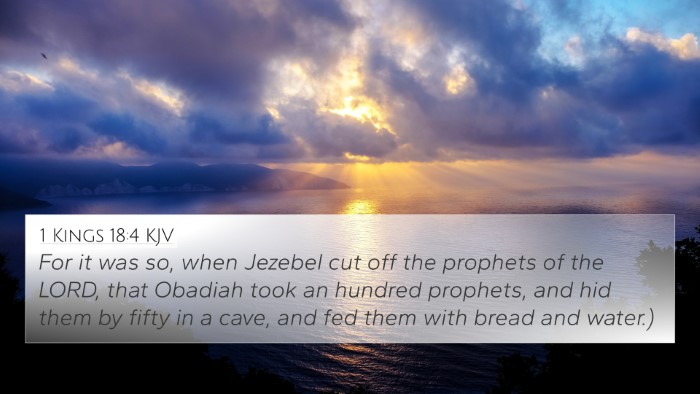 1 Kings 18:4 (KJV) »
1 Kings 18:4 (KJV) »
For it was so, when Jezebel cut off the prophets of the LORD, that Obadiah took an hundred prophets, and hid them by fifty in a cave, and fed them with bread and water.)
 1 Samuel 20:31 (KJV) »
1 Samuel 20:31 (KJV) »
For as long as the son of Jesse liveth upon the ground, thou shalt not be established, nor thy kingdom. Wherefore now send and fetch him unto me, for he shall surely die.
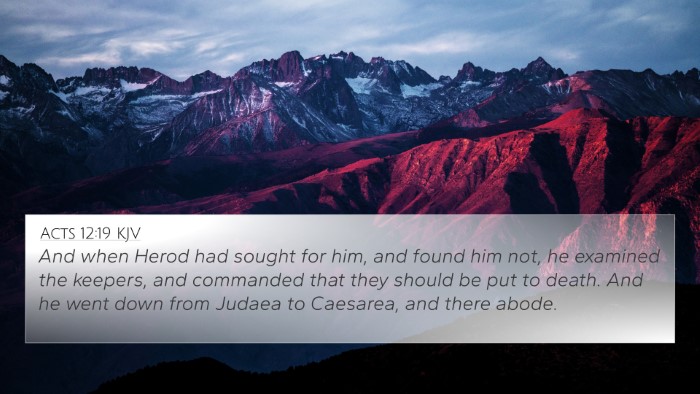 Acts 12:19 (KJV) »
Acts 12:19 (KJV) »
And when Herod had sought for him, and found him not, he examined the keepers, and commanded that they should be put to death. And he went down from Judaea to Caesarea, and there abode.
